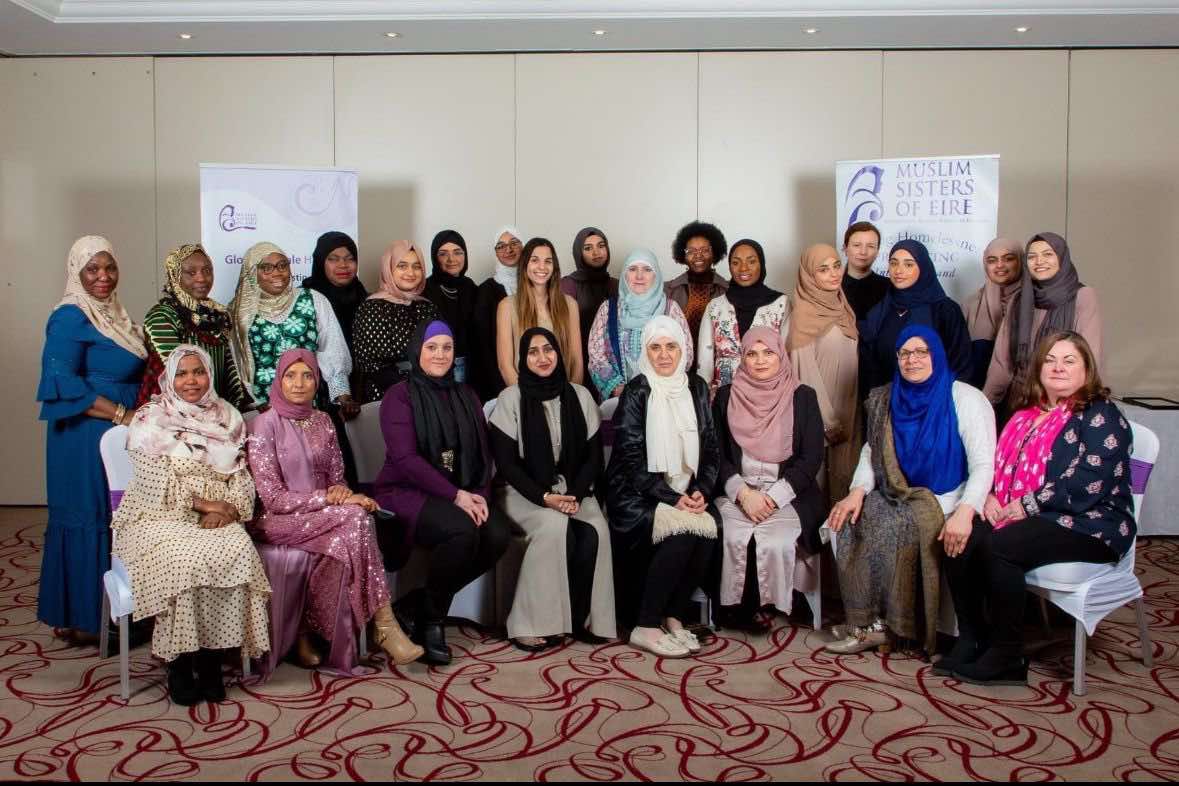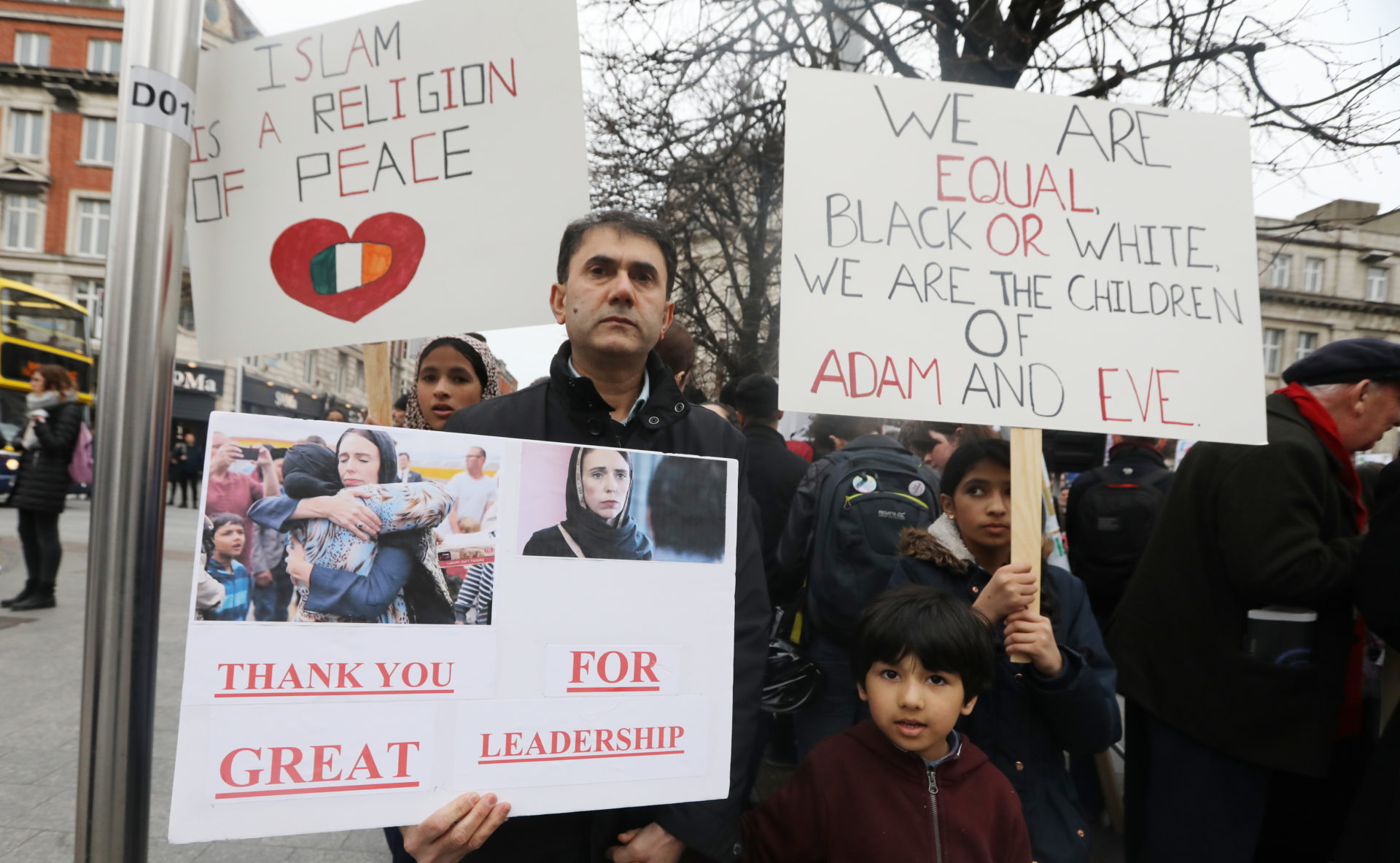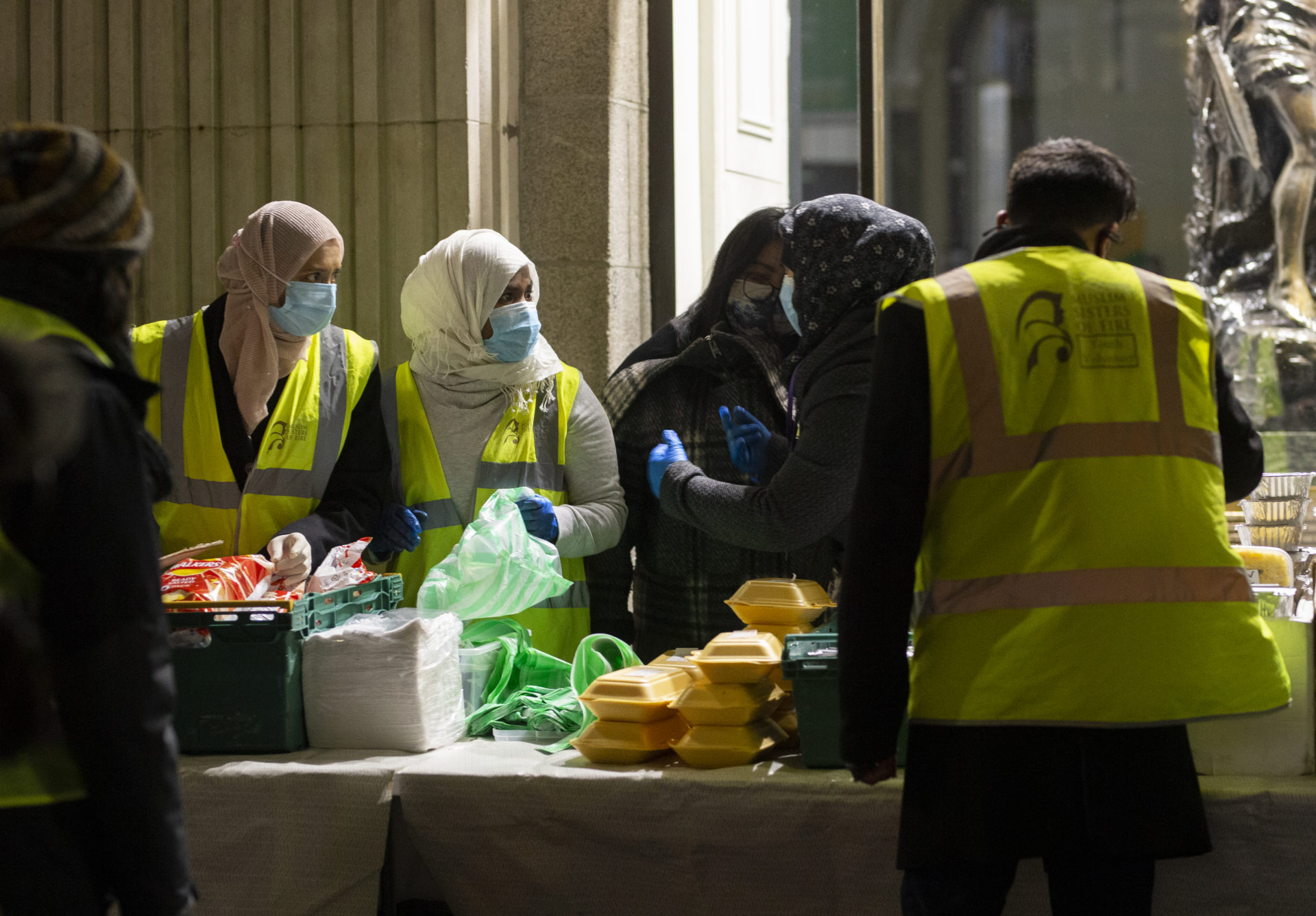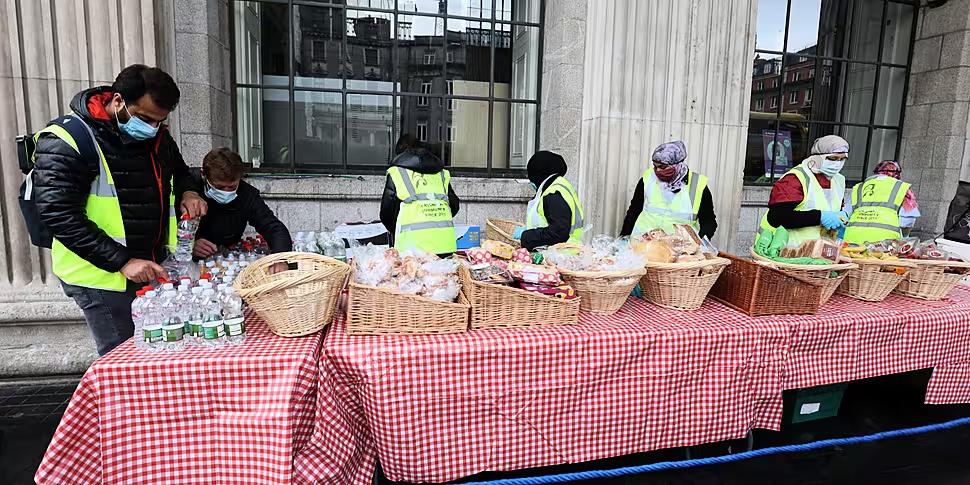Muslim leaders in Ireland have said there is an increase in white Irish people converting the Islamic faith.
Known as 'Celtic Muslims', this new wave of reverts to Islam is happening due to a number of factors, according to Imams, sociologists, and reverts across the country.
Revert is the name given to converts to the Muslim faith.
On today's Pat Kenny show, Newstalk reporter Sarah Madden reported on the phenomenon sweeping the nation.
Half-Irish, half-Salvadorian Ken was brought up Catholic for the majority of his life, even planning to become a priest.
"I had interviews to become a Jesuit," he said.
"That entailed me going to study for some time in the Vatican and meeting lots of different people, different Catholics, internationally and such."
Suited my spirituality
Ken divulged that he observed some things within the church that weren't to his liking.
"At the time someone invited me to explore Islam," he continued.
"It felt to me that was a lot more of what I was seeking in terms of my spirituality. It seemed to me to make a lot more sense.
"So, that was when I decided that I would follow Islam.”
Now working as a teacher in a local secondary school, Ken said he feels very at home with his faith in Ireland.
"I think one of the lesser understood aspects of it [Islam] is how important nature is," Ken explained.
“There are things like when you hear the cockerel crow in Islam, you make a prayer. Why? It’s because when a cockerel crows it’s because they’ve just seen an angel pass.”
 Muslim Sisters of Éire
Muslim Sisters of ÉireResonates with Irish people
Imam Dr Umar Al-Qadri believes there has been a massive uptick in the interest around Islam in Ireland.
“I think particularly after Covid we have seen a huge increase," he said.
"But also, especially after October 7 last year - after what happened and the ongoing genocide in Gaza, we have seen a lot of people getting interested and want to know about the faith of these people.
“These people that are so strong minded and they are going through such a difficult time.
"And it resonates with a lot of Irish people, you know, the struggle for freedom and independence."
Dr Al-Qadri has "embraced Islam" with 500 people over the last 20 years in Ireland, including the late Sinéad O'Connor who was a famous revert to the Islamic faith.
Dr Hazel O'Brien believes that disillusionment with the Catholic church has aided this interest in Islam.
“There are some small qualitative studies out there with converts to Islam that have certainly shown that many of those converts are disillusioned with the church," Dr O'Brien said.
"Disillusioned with aspects of its practice.
"Perhaps they feel that it’s not structured enough, that it doesn’t offer them enough personal practice. But also of course that they are disillusioned with some of the scandals that we have seen occur in the church over the last few decades, like clerical abuse and how those things have been handled.
Theological conversations
The sociology lecturer cites societal and ecological crises as other causes for this surge in reversion, saying these kinds of crises force people to question what they believe in.
"I think the likes of climate change in particular, because it’s so physical, it threatens our physical survival," she said.
"I think it also forces us to really engage with what is meaningful for us, what does it mean to have a human experience and of course that’s going to bring us into the realm of theological conversations and thinking through theological questions.
"I also think there’s probably been a move towards individualism in Ireland and that individualism I think is prompting people to feel more comfortable in seeking out alternatives in terms of their religion.
"Irish people in recent decades have been exposed to new ideas and different types of people sometimes done through face to face because of the likes of increases in immigration but it’s also done through the likes of new technology – it’s the introduction of TV and the internet.
"All of those things expose us to new ideas which means that people are probably more aware now of the alternative religious expressions that exist across the globe and that means that they have more information available to them in order to make their choices."
"Where are you getting that from?"
Celtic Muslim Amala - formerly Emily - reverted to Islam with her mother at just eight years old.
The young Muslim woman recalled her mother having to tell the school about her change in religion.
"I remember the teacher making an announcement to the class," Amala said.
"She said, 'Emily is now a Mohammedan', and I remember sitting at the back of the class thinking, 'what?'
"And then she said 'Mohammedans worship Mohammed'.
"I remember putting my hand up and saying, 'We don’t worship Mohammed. Mohammed is just a profit, we workship god. Where are you getting that from?'"
 23/3/2019. Muslim Protest Dublin. Members of the Irish Muslim community and supporters held a vigil at the Spire in Dublin City centre, under the slogan "Calling All Allies", in protest against the attacks on Muslims in New Zealand. Photo shows a Muslim family at the protest. Photo: Eamonn Farrell/RollingNews.ie
23/3/2019. Muslim Protest Dublin. Members of the Irish Muslim community and supporters held a vigil at the Spire in Dublin City centre, under the slogan "Calling All Allies", in protest against the attacks on Muslims in New Zealand. Photo shows a Muslim family at the protest. Photo: Eamonn Farrell/RollingNews.ieRacial discrimination
Amala also spoke to Sarah about the issues she faces wearing a hijab (head scarf) in Ireland.
Lorraine O'Connor, founder of the Muslim Sisters of Éire charity, echoed these sentiments.
"It was difficult, I’m not going to lie, because when I started wearing my scarf, I lost my own identity as Lorraine from the Northside of Dublin," she said.
"I started getting pockets of racial discrimination, getting told 'go back to where I came from' and I’m looking at them going 'Coolock? Kilbarrack?'"
Culture shift
The Dublin native reverted to Islam following her divorce from a Muslim man.
"It had to be for me," she said.
"I was brought up with a huge emphasis on religion. We were always made aware of a higher being, of a god.
"We used to have to pray our rosary at night, my father used to make us pray at night. Sure, we’d go into a fit of giggles and he was disgusted with us.
"I’ve always thought that seed of faith was put into me when I was a child, and it nurtured to find where I am today."
Despite her previous experience with the faith, Lorraine didn't find the process of reverting easy.
"I suppose the most difficult part was that after I had become a Muslim, I had to integrate into the Muslim community," she said.
"I had to learn how to pray, the prayers are all in a different language.
"It’s a different way of living - there’s things that you have to stop doing, there was no more Christmas, no more easter, you know, things that you needed to do slowly…"
 12/02/2021 Covid-19 Pandemic (Coronavirus), Ireland. Day 324 since start of lockdown. Day 44 of return to Level 5 restrictions. Pictured the Muslim Sisters of Éire handing out food ast night under the pillars of the GPO as hundreds of people from very young and through o elderly people many homeless and disadvataged que line which is being carried out by the Muslim Sisters of Éire every friday evning. Photograph: Sam Boal / RollingNews.ie
12/02/2021 Covid-19 Pandemic (Coronavirus), Ireland. Day 324 since start of lockdown. Day 44 of return to Level 5 restrictions. Pictured the Muslim Sisters of Éire handing out food ast night under the pillars of the GPO as hundreds of people from very young and through o elderly people many homeless and disadvataged que line which is being carried out by the Muslim Sisters of Éire every friday evning. Photograph: Sam Boal / RollingNews.ieMotherly guidance
For her, having the support of her religious Mother was the most important part.
"I remember saying to her that I had become a Muslim and like the true person of faith that she was, god bless her, she turned and asked me, 'Are you happy? Have you found peace,'" Lorraine recalled.
"I said 'yes' and she said, 'I’m happy for you'.
"To me, that was the only thing I needed. That validation from my Mother."
Irish Muslim culture
The growing community of Irish Muslims has led to the belief that there should be an Irish Muslim culture of its own.
“I strongly believe that we need to establish an Irish Muslim identity, rather than the Muslim identity from the Arab countries or the African or the Asian countries - we need to have our own Irish Muslim culture," Dr Umar Al-Qadri said.
Dr Al-Qari wants to see the Irish language incorporated.
"'Dia Dhuit' – we have this beautiful greeting - 'May god be with you'.
"As a Muslim, I have added, and I have changed the response to 'Dia is Mohammed Dhuit'.
"I have often said to my congregation that it’s much easier to live as a Muslim in Ireland than it is in many Muslim majority countries because this is a society where we have human rights - and a society where there is no human rights can never be, in my view, an Islamic society.
"So, being Irish and being Muslim, for me it means really to be part of the society and to be proud that this is your home and to work for a better future for everyone that calls it home.
"Whether they are Muslim or not doesn’t matter because at the end of the day we are all Irish, we are all citizens and residents of this beautiful island of Ireland."
You can listen back to Sarah Madden's report here:
The Muslim Sisters of Eire set up for the annual soup run for homeless and people in need, 30/07/2021. Photo: Sam Boal/Rollingnews.ie









